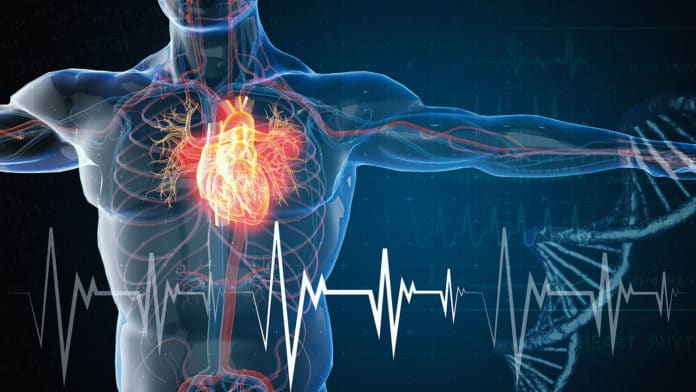Atrial fibrillation (AF or AFib) is a common condition that leads to blood clots in the heart and sometimes stroke. The condition causes irregular heart rhythm.
Scientists at the Harvard-affiliated Massachusetts General Hospital and the Broad Institute of MIT and Harvard have developed an AI-based method for identifying patients who are at risk for atrial fibrillation. By considering the results from electrocardiograms, the method predicts whether the patient will have AF within the next five years.
Scientists applied their method to three large data sets from studies, including a total of 83,162 individuals. It predicted the risk of Atrial fibrillation on its own and was synergistic when combined with known clinical risk factors for predicting atrial fibrillation.
Senior author Steven A. Lubitz, a cardiac electrophysiologist at MGH, said, “We see a role for electrocardiogram-based artificial intelligence algorithms to assist with the identification of individuals at greatest risk for atrial fibrillation.”
“The algorithm could serve as a form of pre-screening tool for patients who may currently be experiencing undetected atrial fibrillation, prompting clinicians to search for atrial fibrillation using longer-term cardiac rhythm monitors, which could, in turn, lead to stroke prevention measures.”
Co-author Anthony Philippakis, chief data officer at the Broad and co-director of the institute’s Eric and Wendy Schmidt Center, said, “With the explosion of data science technologies and the vast amounts of clinical data now available, machine learning is poised to help clinicians and researchers make great strides in enhancing cardiology care. As a data scientist and former cardiologist, I’m excited to see how machine learning-based methods can work with the tests and clinical approaches we use every day to help us improve risk prediction and take care of patients with atrial fibrillation.”
Shaan Khurshid, an electrophysiology clinical and research fellow at MGH: “The application of such algorithms could prompt clinicians to modify important risk factors for atrial fibrillation that may reduce the risk of developing the disease altogether.”
Journal Reference:
- Shaan Khurshid, Samuel Friedman et al. Electrocardiogram-based Deep Learning and Clinical Risk Factors to Predict Atrial Fibrillation. DOI: 10.1161/CIRCULATIONAHA.121.57480
